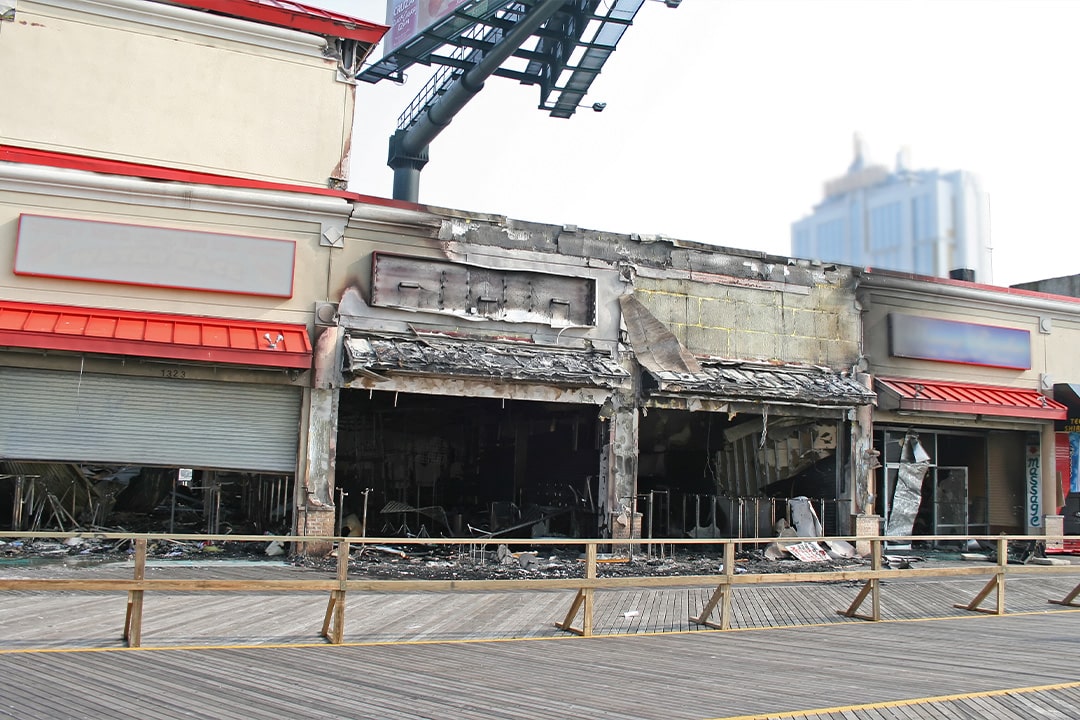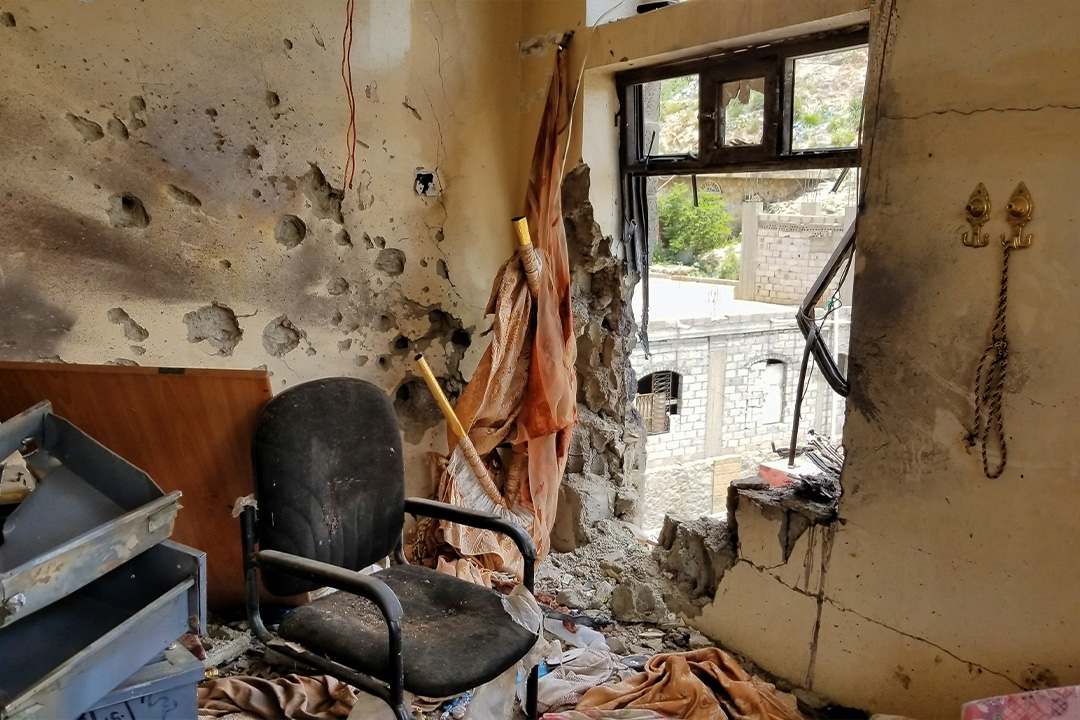Blast Protection
Blast Resistant Glass Windows & Blast Proof Doors

Protect People From Bomb Blasts and Glass Fragmentation

Custom Fabricated Blast Resistant Glazing Solutions

Blast Protection for Government Buildings & Storefronts
Blast Protection FAQs
What does blast mitigation mean?
While it isn’t possible to completely prevent explosions, there are ways to minimize, or “mitigate,” the amount of damage done to the building and those inside of it. These bomb blast mitigation techniques can include incorporating blast resistance into building design and installing blast-resistant doors and windows are collectively called “blast mitigation glass”.
What does an explosion do to glass?
It often isn’t the explosion itself that harms glass, but the pressure wave that follows. This pressure wave causes glass windows to shatter often just from the sheer force and sometimes from the debris that it carries with it through the air.
Regular glass shatters into dangerous shards called spall which can then be carried through the air at high speeds. That flying glass can easily injure people and damage assets. A large portion of injuries from blast-related incidents is caused by glass fragmentation, glass breakage, and spall, which is why the main focus of blast mitigation is impact protection, which reduces the risks of injuries from flying projectiles.
What are blast-resistant windows made of?
There are several blast-resistant window products out there, but some of the best-performing options are made of polycarbonate, like DefenseLite. With strength 250 times that of glass, DefenseLite’s proprietary polycarbonate blast-resistant barriers for doors and windows stand up to the blast wave and flying objects without shattering, eliminating the threat of broken glass.
Additionally, bomb blast-resistant windows can be made of laminated glass. While these windows won’t stand up to a bomb blast the same way polycarbonate panels do, laminated glass won’t shatter into dangerous shards as regular glass does. A layer of plastic between the glass keeps this type of window from flying inward when shattered, offering an added layer of blast resistance over the plain glass. However, laminated glass tends to negatively impact visibility, whereas polycarbonate does not.
What are blast mitigation windows?
“Blast mitigation windows” is another term used to describe windows that are built to withstand the pressure wave from an explosion. Since these reinforced windows can mitigate the damage caused by a bomb blast and resulting pressure wave, they are often referred to as “blast mitigation windows.”
Just like “blast-resistant windows”, these windows can be made of laminated glass or polycarbonate.
What does blast-resistant mean?
Blast resistance is the ability of a material or structure to withstand pressure from an explosion. Since “blast-proof” would mean that the material is entirely immune to damage from an explosion (one example would be concrete), it’s not a term commonly used when discussing windows and doors. Instead, we use the term “blast-resistant.”
There are varying levels of blast resistance, so make sure you know how blast-resistant your windows are. You can learn more about DefenseLite’s blast resistance standards here.
Customer Testimonials
“As a security and protective design and engineering consultant for 45 years, and after having participated in reviewing, analyzing, testing and subsequently specifying many different force protection products for clients with extreme security concerns, I would strongly advise those in similar positions to consider the products sold under the “DefenseLite” brand name, and fabricated, furnished and installed by Impact Security. We have submitted their products to personal attacks by our security specialists and been engaged in having their products tested under live firing range conditions by elite law enforcement agencies for ballistic resistance and forced entry and can attest to their efficacy and value.”.
Robert Ducibella Founding & Senior Principal
RAPCS LLC & Emeritus DVS
"While there are numerous aspects to any comprehensive security program, if you are able to make the windows of a facility difficult or impossible to breach, you can significantly enhance the overall security of the site. Many institutions take actions to secure their facilities without considering the “why” behind those actions. The best security plans are rooted in security principles that allow you to gain time during an emergency situation, and keep a threatening person at a distance. This is exactly why we utilized DefenseLite and BulletShield for our more vulnerable clientele, worldwide. Having worked on numerous and complicated security projects all over the world we have also experienced the value of having a high quality partner to properly install these items. Jeff Franson and his team have always done a stellar job, going above and beyond, and have ensured that the windows at our sites have the highest level of security features."
Ariel Siegelman President
DRACO Group
"I just wanted to take a minute to let you know that we recently had an attempted break in, the key word here is (attempted). Around 5:30 AM 3 individuals pulled up to the store, got out of a car, wearing masks and carrying bats and bricks. One started throwing a landscaping brick (~10 pounds) at the glass door protected by DefenseLite and the rock just bounced off, the other two went to work on one of the windows with the bats. The bats had little effect on the DefenseLite. After about 5 minutes of repeatedly throwing the brick at the door the glass behind the DefenseLite broke, but the DefenseLite stayed intact. The three spent a total of 8 and a half minutes beating on the Defense with rock and bats and still did not get in. I am 100% confident had I not chosen to put the DefenseLite they would have gotten it and gotten away with countless guns and I would have been dealing with the ATF and State Police for weeks if not longer and there would be a lot of illegal guns on the street. DefenseLite is hands down the best means of keeping bad people out of your store."
Mark Glavin President
Fox Valley Shooting Range
"Recently we had a torch attack on the side door at our Patagonia Portland Store (there have been two now). And last week we had a cinderblock attack on the same set of doors. There are no broken door glass, the doors were not damaged, and no intrusions into our store. Without DefenseLite, the damage to the door glass and doors would have been in the 10K range minimum. Then you have the amount of product that could have been taken out of our store. And then (a harder matrix to measure) store moral and store appearances would have most likely have suffered. Bottom line, DefenseLite works again! "
Joe Tayag Loss Prevention
Patagonia
"DefenseLite recently completed a very complex lobby project for us which entailed a specialized design with multiple pieces and required a challenging installation. We could not be happier. The project was a grand success and the DefenseLite management as well as installers, were the utmost professionals demonstrating genuine care and customer service. Their technical knowledge is superb. We felt very taken care of as updates and good communication with us were continually provided. Thanks!"
Doug Feliciano, J.D. Director of Facilities Security
Office of the County Executive, County of Santa Clara
